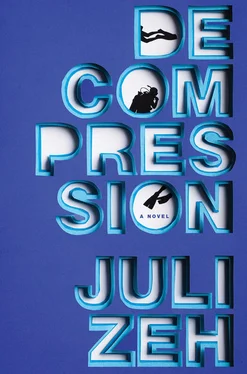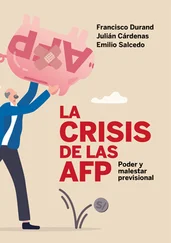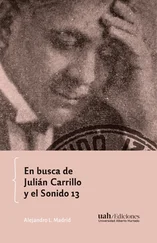The door closed with a crash behind him. Only when the lights went on inside the Casa did I realize that it had been totally dark inside. As if Jola weren’t home. Except that when you were at the ends of the earth, you needed a car to go anywhere, unless you went to the water, so where was she? In her bed asleep, perhaps. Or maybe sitting in darkness at the dining-room table and staring into space. I tried to think about paella, but I didn’t feel hungry anymore.

That night I dreamed about Jola. She was dancing in front of a desk where two men were sitting. One of them was Theo, and I didn’t recognize the other. There was no music to be heard, so Jola’s bare feet struck the floor all the more loudly as she danced. She was trying out for a new role. She wore diving goggles and the red bikini. While the men watched her, they were jerking off under the table. Jola ended her dance before the men had reached their goal. A wrenching pain in my lumbar region made me aware that the second man at the table must be none other than myself.
“Lovely, Frau von der Pahlen,” Theo said to Jola as she stood before us, breathing hard. “And now please spell Montesquieu .”
Jola stuttered, Theo laughed. I wanted to go into action. I wanted to jump up and shout that I was no judge, that I would deliver no verdict, that I had nothing to do with the whole affair. But my mouth was so dry I couldn’t utter a sound, nor could I move my legs.
“Not even a guess?” said Theo.
Jola started crying. Now she was dressed like Bella Schweig, and she was telling her ex-boyfriend about the accident out on the street.
“Better try somewhere else.” Theo scribbled something on a little card and handed it to Jola. “Death is a business that’s always hiring.”
My hands flew forward and seized Theo by the throat. Before I could tighten my grip, Jola came closer. She wasn’t actually in the room, she was on a large video screen. She smiled and spoke to the camera. “Don’t turn us off. We’ll turn you off,” she said.
I screamed and sat bolt upright in the bed. Antje rolled over and looked at me in the semidarkness.
“Serves you right,” she said, turned on her other side, and went back to sleep.
The next morning I woke up in the living room. I needed a little while to get my bearings, but I slowly realized that I was on the couch. Antje was asleep in the bedroom, and the house was absolutely quiet. Apparently that “Serves you right” had been part of my dream. The pages of Theo’s story lay scattered on the floor next to me. Although I couldn’t remember reading them before falling asleep, I knew for sure they were somehow connected to my dream.
I swung my legs over the edge of the couch and sat up. For the first time in four nights, I’d had several hours of uninterrupted sleep. I felt sick. It occurred to me that I didn’t know why and for what I was alive. Then I got to my feet and went into the kitchen to make coffee.
At first I believed it was a coincidence and then that it was my imagination, but on my tenth day with Theo and Jola, it became a fact: people were crossing the street to avoid me. It happened three times in a row on the main tourist drag in Puerto del Carmen, where we’d gone for ice cream between dives. First there was a group of local Spanish women, possibly part of Antje’s circle of friends. Then a married couple who might have been the owners of one of the holiday houses that Antje managed. And then two older men I couldn’t connect either to Antje or to myself. They all came toward us, looked at me, and crossed over to the other side of the street. Jola and Theo didn’t seem to notice anything.
My paranoia was probably a result of Bernie’s telephone call. My telephone had rung that morning at breakfast. It was Monday; the great diving expedition on the Aberdeen was to take place in two days. A few questions still needed to be cleared up, but it turned out that Bernie was calling for another reason. He asked me how things were going in a tone usually reserved for addressing pregnant women and cancer patients. “How are things going?” Because I didn’t understand what he was getting at, I said nothing. Antje looked at me attentively, holding a slice of bread and honey in front of her mouth. I stood up and went out onto the terrace.
And then Bernie really started in on me. What did I think I was doing. What was going to happen now. Didn’t I care about my job. Didn’t I have any shame. What did Antje have to say about all this.
It took me a while to understand that his subject was me and Jola. Actually, I liked Bernie. He was a person with a strong foundation, a basic agreement with himself that prohibited him from being friendly without good cause. This made dealing with him uncomplicated. In my opinion, most problems arose not because people wanted to harm one another but because they didn’t know what to talk about. They’d cast about for a topic, and outside of the weather and malicious gossip, there was simply nothing that could keep a conversation between two people going. With Bernie, it was different. He was taciturn and gruff and therefore incorruptible.
But on this particular morning, he talked and talked and refused to give it a rest. He got on my nerves. Speaking in English, naturally, he called me a “prick” and a “dumbarse” and came at me with the divers’ “Do It Right” doctrine. And all of it at machine-gun speed, even though he knew I didn’t understand English very well on the telephone.
I said, “Fuck off, Bernie,” and hung up. However, I couldn’t get his call out of my mind. I didn’t know what Bernie or Dave or anybody else had heard. He hadn’t sounded worried, he’d sounded irate. I needed Bernie, Dave, and the Aberdeen on Wednesday. Planning for the expedition had been going on for months, and I’d invested a pile of money in new equipment. What I most felt like doing was going out and taking the first person I saw by the collar and yelling in his face and asking him who he thought he was, sticking his nose in other people’s affairs like that, and demanding that he and his island friends stop spreading lies about me. Wars started that way, through the appetite for rumor. Through readiness to believe, always, the worst about other people. I was more than pleased when we got back into our diving suits. The neoprene formed a thick skin that kept the world out. I looked forward happily to another half hour when I wouldn’t have to share the air I breathed with humankind.
A measure of my perplexity was that we dove again off Playa Chica, the beach at Puerto del Carmen. By that time, Jola and Theo knew all the island’s dive spots. Barracudas, groupers, and angel sharks were no longer a sensation. One of my personal goals was to surprise my clients again and again. But few of them stayed longer than ten days, and hardly anybody undertook more than two dives per day. There was a limit even to the number of sightseeing points in the Atlantic Ocean. I had slowly run out of ideas. Under the ledge east of Playa Chica, there was a cave spacious enough to be safe. It was the last thing I had to show them. After that, we’d have to fill the remaining days with boat diving.
I swam close to the seabed, turning around every few seconds to check on my two companions, making sure they didn’t get tangled up in an anchor cable or caught in somebody’s lost fishing line. Although Bernie and I launched cleanup campaigns from time to time, Playa Chica remained the dirtiest spot on the island. To our left, Laura and a group of beginners were churning up sludge. Above us, children were jumping off the quay, feet first, prepared to kick an ascending diver in the head. Snorkeling tourists hauled their bellies through the water and looked down on us, never dreaming how badly their backs would be sunburned that evening. The drumming of motorboat engines was constantly in our ears. We couldn’t leave the cove behind fast enough. We headed for the rim of the ledge, from where we would venture into deeper waters.
Читать дальше













